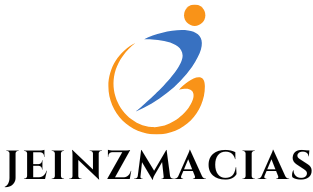No matter if you run a startup or an established business, having affordable business insurance is essential. While the thought may not be pleasant, having such protection in place will safeguard against disaster if it arises.
Thimble offers general liability policies starting at $17/month that provide up to one million in coverage.
1. Commercial Auto Insurance
Commercial auto insurance (also referred to as business car or fleet coverage) provides businesses that own or lease automobiles protection against legal liabilities associated with accidents that involve their company-owned or leased vehicle(s). Policies typically cover both physical damage and legal liabilities caused by incidents involving these company vehicles.
Companies such as contractors, landscapers and construction businesses that rely heavily on vehicles for supplies, equipment or workers often need commercial auto insurance policies for their cars or vans. Taxis and livery services must also have coverage.
Based on your business needs, there are a range of policies available that offer commercial auto coverage. At NEXT Insurance Group, we recommend speaking to a broker-agent in order to compare limits, exposure bases, business classifications, deductibles and premiums before selecting one. Furthermore, brokers-agents may offer suggestions to decrease loss frequency and severity through proven risk management techniques.
2. General Liability Insurance
General liability insurance should be the cornerstone of a small businesses insurance portfolio, providing legal expenses coverage if anyone is injured at your business, you damage third-party property, or are sued for libel, slander or copyright infringement. Certain contracts and lease agreements often mandate this coverage while it can help businesses qualify for commercial loans.
Thimble has determined that Thimble’s affordable business insurance policy is usually the optimal choice for startups and SMEs, offering broad protection at a relatively affordable cost: an estimated monthly average premium is about $42.
Cost of your general liability policy depends on your industry; those that are more prone to bodily injuries typically have higher risk profiles and, thus, premiums. But bundling both property and general insurance into one policy – known as a BOP bundle – may save money while meeting all your business insurance needs more efficiently.
3. Business Owner’s Policy (BOP)
A business owner’s policy, or BOP, combines general liability and commercial property coverage into one policy; often more cost-effective than purchasing these policies separately.
A BOP can provide startups with an effective defense against lawsuits resulting from customer injuries or property damage to themselves and third-party claims, fire, theft and natural disasters.
BOPs are widely utilized by small businesses of all types – restaurants, wholesalers and retailers alike – as they can be tailored specifically to each business’s individual needs by adding options like data breach coverage or liquor liability coverage.
Other popular policies for startups include workers’ compensation insurance, which helps employees cover work-related medical costs that their health insurance doesn’t cover; and cyber liability insurance – recommended for any startup handling sensitive personal information like credit card numbers.
4. Business Interruption Insurance
Business interruption insurance (also referred to as business income coverage) provides reimbursement of lost revenues when property damage events prevent your firm from earning money, including being required to close due to civil authority restrictions such as curfews or evacuation orders. A key stipulation of any business interruption policy is its connection to actual physical loss caused by insured perils like fire, flooding or wind.
Most insurers provide business interruption riders as an add-on to commercial property policies; however, standalone policies can also be purchased. Bundled together with general liability, workers’ compensation and business owner’s policy (BOP), business interruption policies may cost around $600 annually but prices may differ – see your insurance provider for details.
5. Business Owner’s Policy (BOP) Bundle
A business owner’s policy, commonly referred to as a BOP, combines three essential forms of protection into a single comprehensive policy. It typically offers protection for commercial property, general liability and business interruption insurance to safeguard businesses against common workplace risks such as bodily injuries and lawsuits.
BOPs typically cost less than purchasing multiple policies separately and are ideal for small and midsized enterprises with under 100 employees, revenues under $1 million, and operating in low-risk industries.
Assuring your business with BOP insurance from one provider can make the policy and claims experience more straightforward, as you only need to deal with one adjuster or contact during the claims process. Many providers also provide add-ons like hired and non-hired auto coverage, business equipment insurance and data breach coverage – for instance Next business insurance offers such options alongside workers compensation and professional liability policies.
6. Business Owner’s Policy (BOP) Supplement
A Business Owner’s Policy (BOP), also referred to as BOPs or Businessowner’s Package Policies (BPP), is an umbrella policy designed for small and midsized businesses considered low risk by insurance providers and operating out of physical locations like offices or stores (for seamstresses, for instance). Usually designed as one policy that combines general liability coverage, commercial property protection and income coverage together. It typically benefits small- to midsized firms operating from offices, stores or even their own home (in cases like seamstresses for instance).
Hiscox tailors its BOP to meet the requirements of microbusinesses, offering policies for under $42 a month. In addition, Hiscox also provides essential policies such as commercial auto and workers’ compensation to help more efficiently manage risks for its clients.
However, not every business fits into the criteria for a BOP, leaving gaps that must be filled by individual policies. Therefore it is imperative that businesses regularly assess their exposures and threats, and purchase protection that evolves with them over time.




